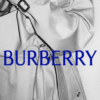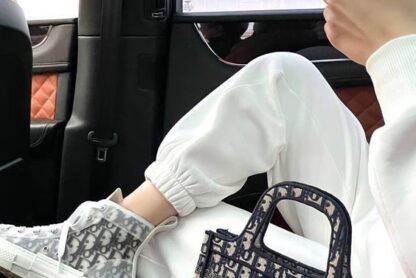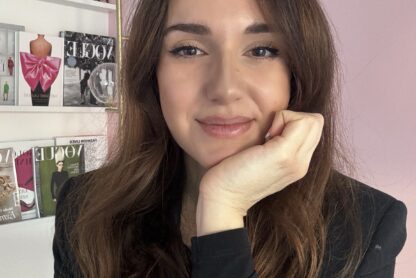If you have been reading Glam Observer for a while, then you know how we like sharing information with you about the different careers in the fashion industry, and show that there is more to fashion than designing and modeling clothes. We recently talked about the role of a fashion buyer, how to write for fashion magazines and sustainability PR manager, and in this article we will explore another field of fashion: Fashion Marketing.
If you consider yourself an analytical person and a digital savvy with an artistic eye, then you have probably thought about Marketing. Though this career is part of the business side of the fashion industry, it leaves room for a lot of creativity.
So, if this role sounds exciting, grab your notebook, and let’s see how to get a job in fashion marketing.
What Is Fashion Marketing?
Before diving into the tips and steps on how to get a job in fashion marketing, let’s learn more about it.
Marketing is one of the most important aspects of any fashion business. Without it, brands wouldn’t gather as much attention from the consumers or create awareness around the products and their sales. So to make it simple, we can say that fashion marketing is the process of promoting products and services to the target audience with the goal to boost sales and make profits.
Fashion marketers can be responsible for promoting a particular product – clothes, shoes, accessories -, a collection, or even the whole brand. No matter the niche, the goal is to create a powerful image around one or several products to see increased sales. The image of the brand depends in large part on marketing because it can be perceived either as “good” or “bad” by the audience. In addition, marketing helps to place the brand in a particular category and to be perceived that way by the consumers – for example as streetwear, affordable or luxury.
Traditional marketing vs Digital Marketing in Fashion
The marketing department has changed over the past years with the new advertising opportunities. If before brands and marketing managers relied only on traditional marketing with media such as radio, television, billboards, newspaper and other printed ads, nowadays with digital marketing, fashion brands have way more opportunities to explore. The advent of digital has brought many new channels to reach consumers globally and not just locally like with traditional marketing. Digital marketing includes email marketing, content marketing (blogs, SEO) and social media (paid and organic advertising, influencer marketing).
The digital space has not only been a great opportunity to reach customers and inform them about brands and products, but it’s opened new business opportunities as well by giving everyone the chance to sell globally directly without the need of opening physical stores around the globe. eCommerce has in fact became crucial both for new and established fashion brands.
Digital marketing has now become the primary focus for fashion brands but an hybrid model that leverages a combination of traditional and digital marketing is what most companies should utilize. By diversifying the marketing efforts brands can reach a different type of audience. If you are considering a career in fashion marketing you need to be well informed about these two as choosing the right marketing strategy is crucial to get the most out of the marketing budget.
A fashion marketer usually has the following responsibilities:
- Conduct competitor and market research to look for best and innovative practices
- Come up with creative, fresh ideas for campaigns and create them
- Prepare marketing materials
- Take care of the email development (share briefs & contents, provide feedback, validate schedules and emails, and set deadlines) and email audience
- Test and set up ads and conduct client targeting
- Plan and manage projects, special product launch, and events, and control they are executed on time
- Analyze post-campaign results, KPIs, and ROI to analyze their success and improve performance
- Write reports
- Build relationships with internal and external stakeholders
- Take care of the documentation, imagery, files, and presentations
- Assist with search engine optimization
- Assist with the translation of the campaigns
Of course, this list is non-exhaustive, and a Marketing manager’s duties can vary depending on the narrow job they do (we talk more about it in the section below).
Because this career involves both creative and analytical tasks, collaborative work with the other departments is very important in Marketing. To give an example, it is common to work with fashion designers to understand their vision for a campaign, and what message they want to transmit about their collection. You could also be collaborating with the Communication department to work on the message and the design of marketing campaigns. And you could also find yourself working with buyers and merchandisers to understand better the trends of the moment, the customers’ behavior and purchasing patterns, what products sell best, which ones need more promotion, etc. You got it: many departments inside a fashion company can help marketing managers do their job more successfully by sharing insights that would help to build an effective message of the product/collection/brand and make a profit.
To sum up, there is a mix of tasks in Fashion Marketing: from ideating and creating campaigns and materials, to building a strategy, to managing the project and analyzing data.
Fashion Marketing Jobs
Marketing is a very broad field, so there are all kinds of jobs related to it. We are listing some of them:
Digital Marketing (intern, assistant or manager)
The Digital Marketing manager is responsible for all the online marketing activities of the website (SEO, SEM, paid social) affiliate marketing program, and email marketing campaign strategy.
Email Marketing (intern, assistant or manager)
As a part of digital marketing, email marketing involves sending emails to the brand’s customers to inform them of new arrivals, discounts and special programs and services with the goal to increase their loyalty and lead to a purchase.
Merchandising
There are several branches within merchandising, and the role can actually overlap with the one of a buyer. There is the Collection Merchandiser, who elaborates the collection plan with the designer, and identifies new product opportunities that will boost sales. And there is the Retail Merchandiser who analyzes past sales and conducts a follow-up re-assortment.
Trend Forecasting
A trend forecaster identifies new trends and predicts how they will shape the fashion industry: from silhouettes and colours to textures, graphics and fabrics.
Communication
The communication team is responsible for all the communication of the brand across all channels (print, digital, social media). They develop strategies to increase the brand’s visibility and contribute to shaping its image.
Public Relations
This role can overlap with Communication, but generally a PR manager’s responsibilities can extend, as they usually have more responsibility in terms of managing a brand’s reputation in the public’s eyes.
Social media marketing manager
This role deals with the strategic part of social media management, so a social media manager is responsible of proposing short and long-term, free and paid strategies to increase brand awareness online.
Brand manager
The brand manager takes care of shaping and preserving the identity of a brand. They conduct analysis on trends, customers, competitors, production, and inventory management. They also develop new business plans and strategies.
Influencers and celebrities partnership Manager
The influencer marketing manager plans, executes and delivers influencers activity. Their tasks include cultivating and strengthening the relationships with influencers, coordinating their campaigns and events during product launches, fashion week, etc.
Event planner
An event planner is responsible for organizing any event of the brand from A to Z. They usually work with the PRs to reach out to the Press, clients, Influencers and VIPs, and take care of all the logistics.
E-commerce
An ecommerce manager will usually coordinate the launch of products on the brand’s website. They supervise products, campaign photoshoots, the digital communication and conduct performance analysis.
Product management
A product developer plans, develops and presents fashion products for a specific market within a company, such as womenswear, footwear or accessories, and monitors sales, among many other tasks.
How To Get A Job In Fashion Marketing?
1. Studies that can help you get a job in Fashion Marketing
Now that we see that there are many fashion marketing roles, you have many options when it comes to choosing a degree. Actually, landing a job in fashion marketing can even seem easier than landing a stylist or designer position, for example, because it is a broad field that is accessible with traditional degrees (but even if you want to work as a stylist, designer or any job in fashion, really, you don’t have to attend a fashion school).
All these jobs that fall into the Marketing category have their own specificities in terms of studies, skills, and requirements, so we will look at Fashion Marketing from a bigger perspective and see what degrees can help you land a job.
The first degree that comes to mind is, of course, Marketing.
But since we are like to show you how to break into the fashion industry from any field, even the ones that may seem unrelated to a fashion job at first glance, let’s see what are the other possible studies.
Business/Management studies are a good option because they teach the foundations of business, including marketing because it’s an unimportant area within an organization.
Since Business and Management are international-focused degrees, theycan help you to work with international fashion companies and stakeholders. What’s more, they provide knowledge of current global markets and teaches skills that can be transferable to the marketer role, such as numeric and IT skills, research and data analysis, strategic and logical thinking, planning, communication, and autonomy, among others.
Another possibility is to study Economics or Finance.
They will provide you with an understanding of the market situation and structure, and give you mathematical, statistical, and computer skills – all of which are highly requested in Fashion Marketing.
If you are more interested in online marketing, consider studying Digital Marketing and/or Social Media.
Nowadays, many marketing campaigns are advertised on the digital platforms, so knowing about social media trends and marketing strategies can be a key to building successful marketing campaigns.
Finally, Communication or Public Relations can also open many doors for you.
Working in fashion marketing is not only about staying behind the computer all day analyzing data and reports; it also involves building relationships with members from fellow teams in your company, as well as external stakeholders, so it’s important to have great communication skills. Plus, PR will give you a foundation of Marketing, project management, and event planning skills. As to Communication, it can help you to create advertising strategies, and understand which channels are most effective to communicate.
2. Develop the necessary skills
6 Skills Needed For Fashion Marketing
Analytical and numeric skills
It may not look so glamorous when as a marketer you have to spend a lot of time doing benchmarking research, and analyzing the trends, campaign results, and sales. So first and foremost, in this job you need to have strong analytical and numeric skills, which involves knowing how to use Google Analytics and Excel.
Computer skills
When your daily tasks include email development, working with ads, and doing client targeting, computer programs are your best friends. Fashion Marketers use tools such as Facebook Ads, Google Ads Manager, Adobe Campaign, HTML, and other programs that help with marketing. Knowledge of SEO (Search Engine Optimization) is also a frequently requested skill.
Creativity
Even though a career in Marketing is part of the business side of the fashion industry, it leaves room for a lot of creativity. How could it no when our world is overloaded with campaigns trying to attract our attention around the brands and their products? So you have to be creative and come up with innovative ideas and strategies to stand out among the competitors.
Project management
Brainstorming is one part of the job, but then comes the part when you have to sit and plan the project. Depending on the narrow marketing job, this may be one of your primary functions, so you will have to develop a strategic plan and manage every aspect of the project – such as a campaign or an event – and make sure that deadlines are met.
Communication
Marketing is a team job, so staying in touch with the other departments is necessary to have all the information about a product, and promote it successfully. The same applies to the stakeholders to make sure the product is well-positioned on the market.
Organizational skills (and everything else to survive in a fast-paced environment)
There are so many soft skills that can make your job as a fashion marketer easier: attention to detail, problem-solving, flexibility, meeting deadlines, and being able to work autonomously, under pressure and tight schedules…you name it.
This job requires strong will and determination, so make sure you work on these skills and include them in your resume to boost your chances of landing a marketing job.
3. Apply for marketing internships and jobs
Now that you know everything you wanted about the career in fashion marketing (at least we hope so), now it’s time to apply for marketing jobs. If you are just starting, you should look for marketing internships first. You have a lot of choices: marketing or digital marketing, or maybe you want to try working in cross-functional fields such as eCommerce or communication. The good thing about it is that you can try out different roles, as your tasks may vary from one job to the other. So, build a strong resume, write a personalized cover letter and use unconventional strategies such as creating a portfolio and networking, and start applying. You can learn more about these tips in my free masterclass.
Good luck!









